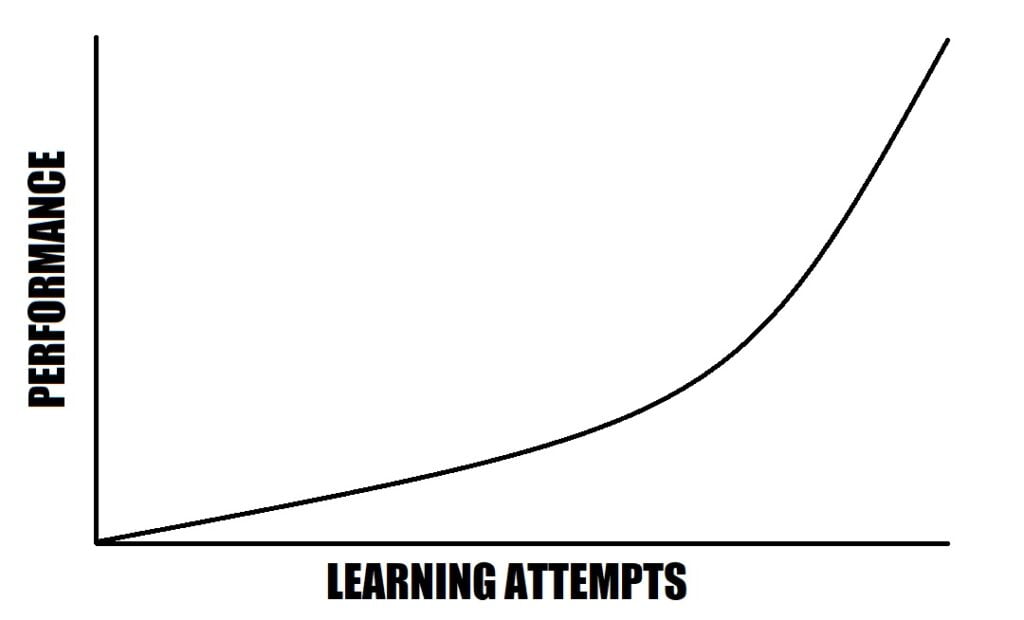In psychology, the learning curve is a graphical representation of the rate of knowledge acquisition over time. The first to describe it was Hermann Ebbinghaus in 1885, in his seminal work “Memory: A Contribution to Experimental Psychology[1].
The learning curve means that the more time you spend practicing the more proficient you become at what you’re learning.

In the beginning, the curve is slow. Learning attempts yield little gain in performance. But as you accumulate experience it becomes easier. You’ll know your way around your subject matter. Learning will become accelerated per unit of time. Eventually, you reach a relative plateau. Further progress might be possible but not practical.
You have probably experienced the learning curve. Like when you learned to ride a bicycle. The beginning was rough and you made mistakes. Keeping balance was difficult. And then suddenly you knew how to ride a bike. A bit wobbly perhaps but better. The more you rode the more confident you became in your ability and you maybe even started experimenting with the ways you saddled or unsaddled your bicycle. Although more tricks with a bike are possible, you probably haven’t taken the time to learn them because you achieved what you needed to achieve: ride a bicycle.
The learning curve of course depends on the difficulty of what you’re studying. More complex topics take a longer time to learn. You can learn to juggle 3 objects in a day but you won’t write a great book.
Helpful tips and tricks
In order to accelerate learning, you can study effectively. This includes topics such as a growth mindset, effective study methods, or equipment like ear muffs.
References
- Ebbinghaus, H. (1964). Memory: A contribution to experimental psychology (HA Ruger & CE Bussenius, Trans.).